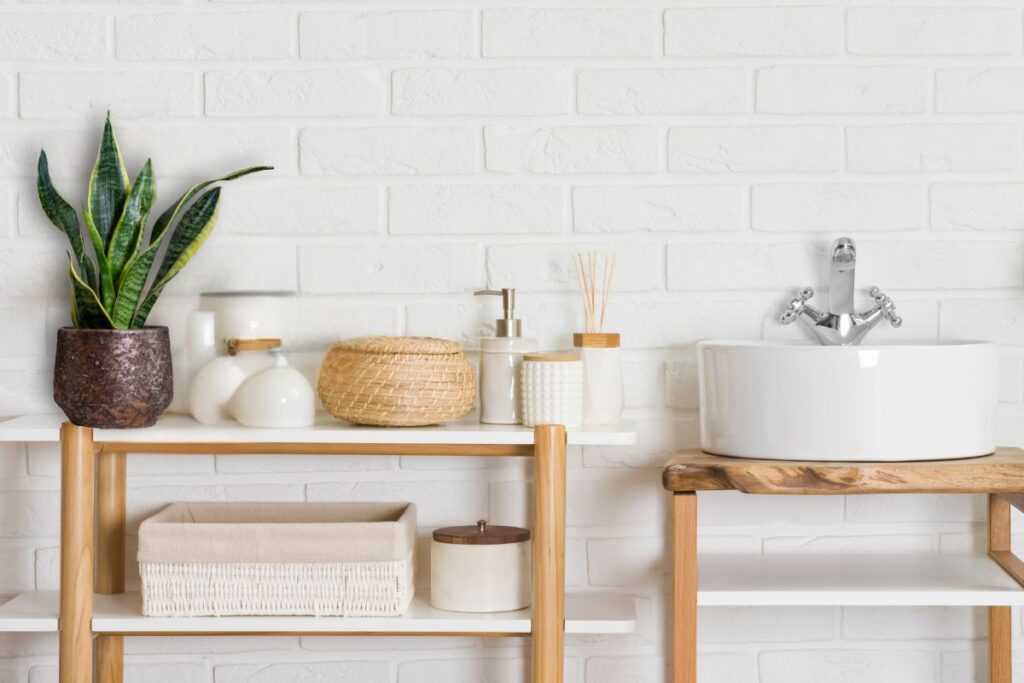Snake plants (Sansevieria), also known as mother-in-law’s tongue, are hardy, low-maintenance plants that can thrive in the humid environment of a bathroom. Their striking, upright leaves make them a great addition to any space.

Contents
Choosing the Right Spot
Light Requirements
Snake plants can tolerate a wide range of light conditions, from low to bright indirect light. Bathrooms with windows that provide filtered light are ideal, but snake plants can also thrive in dimmer conditions.
Avoiding Drafts
Place your snake plant away from direct drafts from vents, heaters, or air conditioners. Stable temperatures and humidity levels are important for the plant’s well-being.
Watering and Humidity
Optimal Watering Schedule
Snake plants prefer to dry out completely between waterings. Water the plant thoroughly when the top 1-2 inches of soil are dry. Be careful not to overwater, as snake plants are prone to root rot.
Embracing Humidity
While snake plants can tolerate low humidity, they will also thrive in the naturally higher humidity of a bathroom. This makes them a versatile choice for any environment.
Soil and Potting

Choosing the Right Soil
A well-draining potting mix is essential for snake plants. A cactus or succulent mix works well, as it provides the drainage and aeration needed to prevent root rot.
Repotting and Container Choice
Repot your snake plant every 2-3 years or when it becomes root-bound. Use a container with drainage holes to prevent water from accumulating at the bottom. Choose a slightly larger pot each time to accommodate the plant’s growth.
Pruning and Maintenance
Pruning for Shape
Remove any dead, yellowing, or damaged leaves to encourage healthy growth. Pruning also helps maintain the plant’s shape and prevents it from becoming too dense.
Cleaning the Leaves
Wipe the leaves with a damp cloth to remove dust and keep them looking vibrant. This also allows the plant to photosynthesize more effectively.
Fertilizing
Fertilizer Types
Feed your snake plant with a balanced, water-soluble fertilizer diluted to half strength. Apply the fertilizer every 2-3 months during the growing season. Reduce feeding in the fall and winter when the plant’s growth slows down.
Avoiding Over-fertilization
Over-fertilizing can harm snake plants. Always follow the package instructions and dilute the fertilizer to avoid nutrient burn.
Dealing with Common Issues
Leaf Yellowing or Browning
Leaf yellowing or browning can indicate overwatering, underwatering, or insufficient light. Adjust your care routine accordingly and remove affected leaves to promote new growth.
Pests
Snake plants can occasionally attract pests like spider mites, mealybugs, and scale. Inspect your plant regularly and treat any infestations with insecticidal soap or neem oil.
Conclusion
Snake plants are a hardy and low-maintenance addition to any bathroom. With proper light, watering, and humidity, your snake plant will thrive and add a striking visual element to your space. Happy gardening! 🌿
